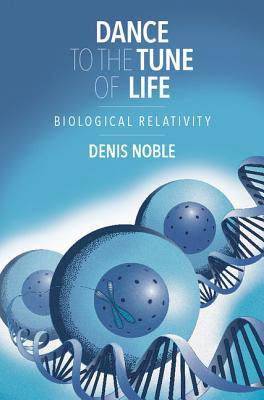
Door een staking bij bpost kan je online bestelling op dit moment iets langer onderweg zijn dan voorzien. Dringend iets nodig? Onze winkels ontvangen jou met open armen!
- Afhalen na 1 uur in een winkel met voorraad
- Gratis thuislevering in België vanaf € 30
- Ruim aanbod met 7 miljoen producten
Door een staking bij bpost kan je online bestelling op dit moment iets langer onderweg zijn dan voorzien. Dringend iets nodig? Onze winkels ontvangen jou met open armen!
- Afhalen na 1 uur in een winkel met voorraad
- Gratis thuislevering in België vanaf € 30
- Ruim aanbod met 7 miljoen producten
Zoeken
Omschrijving
In this thought-provoking book, Denis Noble formulates the theory of biological relativity, emphasising that living organisms operate at multiple levels of complexity and must therefore be analysed from a multi-scale, relativistic perspective. Noble explains that all biological processes operate by means of molecular, cellular and organismal networks. The interactive nature of these fundamental processes is at the core of biological relativity and, as such, challenges simplified molecular reductionism. Noble shows that such an integrative view emerges as the necessary consequence of the rigorous application of mathematics to biology. Drawing on his pioneering work in the mathematical physics of biology, he shows that what emerges is a deeply humane picture of the role of the organism in constraining its chemistry, including its genes, to serve the organism as a whole, especially in the interaction with its social environment. This humanistic, holistic approach challenges the common gene-centred view held by many in modern biology and culture.
Specificaties
Betrokkenen
- Auteur(s):
- Uitgeverij:
Inhoud
- Aantal bladzijden:
- 302
- Taal:
- Engels
Eigenschappen
- Productcode (EAN):
- 9781107176249
- Verschijningsdatum:
- 16/01/2017
- Uitvoering:
- Hardcover
- Formaat:
- Genaaid
- Afmetingen:
- 159 mm x 235 mm
- Gewicht:
- 635 g

Alleen bij Standaard Boekhandel
+ 79 punten op je klantenkaart van Standaard Boekhandel
Beoordelingen
We publiceren alleen reviews die voldoen aan de voorwaarden voor reviews. Bekijk onze voorwaarden voor reviews.











